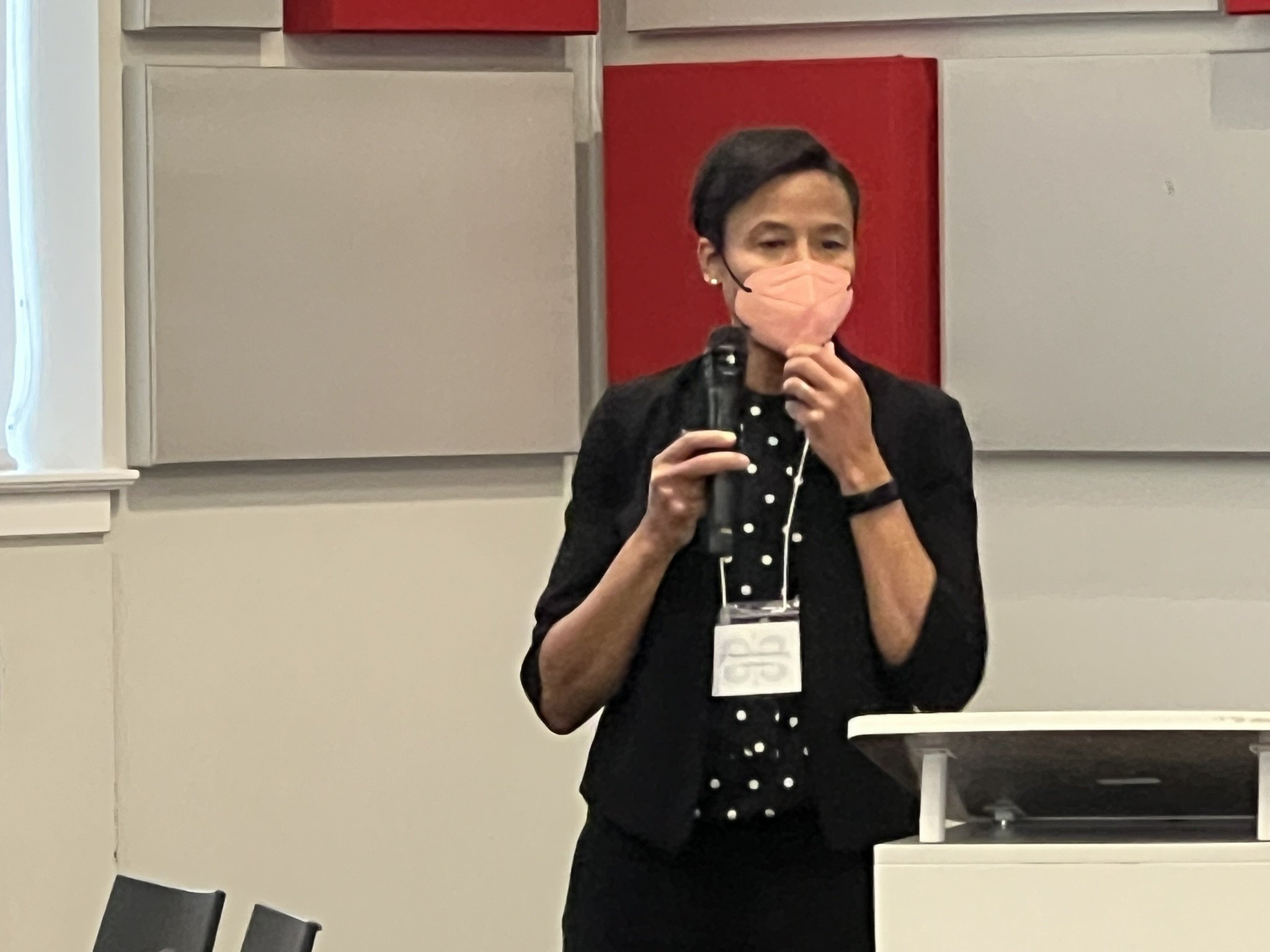What do a bus route, a new grocery store, a public housing complex, and a new public school all have in common?
The answer may not seem obvious, but groups across the country argue that this common denominator – considering health in public policy - is critical to the longevity and wellbeing of communities.
Last month, the Health Equity Fund convened its third grant partner learning series event to explore how leading with this concept could help magnify their advocacy efforts.
“It is critical that we consider health first in public policy,” Dr. Keshia Pollack Porter, Bloomberg Centennial Chair at the Johns Hopkins School of Public Health explained. “Integrating and articulating health considerations into policymaking across sectors has the potential to improve the health and wellbeing for thousands – particularly for communities of color.”
The idea of leading with Health in All Policies (HiAP) is not a new concept. Over the past decade, the approach has been championed by major health agencies like the CDC, the World Health Organization, and others as a way to build a stronger, more resilient health system.
The idea is that by promoting health, equity, and sustainability considerations while engaging a broader array of stakeholders, policymakers can ultimately build a system that works better for everyone.
As the DC government prepares to release its budget, many nonprofit partners with the Health Equity Fund hope that promoting a Health in All Policies mindset will have an impact that carries over into FY25 and beyond.
Dr. Keshia Pollack Porter, Bloomberg Centennial Chair at the Johns Hopkins School of Public Health outlines Health in All Policies for Health Equity Partners.
“Health in All Policies is critical to helping us achieve health equity,” Dr. Pollack Porter shared. “Policymakers and agencies must understand that healthcare (and the gaps that exist in healthcare) aren’t confined within the walls of a hospital. Community Health is so much more than that.”
However, Dr. Pollack Porter explained that for many government agencies – especially those that operate in silos - adopting a mindset of Health in All Policies can take some time to implement.
“Collaboration has to be a physical activity,” Christina Henderson, DC Council Member (At-Large) and Chair of DC’s Council on Health shared. “By naming it [Health in All Policies], we force people to be more intentional and explicit in considering how their actions have broader impact – not only across their agencies or departments, but across our community.”
Council Member Henderson joined Dr. Pollack Porter and Dr. Arnetto Arno, Director of the DC Office of Health Equity, to share how Health in All Policies has been implemented at the DC Government level. She explained that while the DC government has made a lot of progress, there is still a lot of work to do to catch the vision of Health in All Policies.
“There’s so much more that goes into the health of a person than just access to health insurance,” Council Member Henderson explained, pointing out that DC ranks among the top cities in the nation for enrollment in Medicaid – but lags far behind in other critical areas like access to healthcare.
“We have to look outside of the data; outside of our departments, and see what’s really happening,” Dr. Arno shared. “Too often the data and averages that we use to formulate public policy mask the inequities that keep us from moving forward.”
“Health in All Policies is about taking a broader approach to find a better way to advance the policies that can make a difference.”
Dr. Arno added that the most rewarding and fulfilling work of Health in All Policies actually comes – not from the data – but from engaging with the community.
“If we’re hearing from community members, our policies simply aren’t going to get where they need to be.”
Dr. Arno’s assessment was echoed by several national advocates of the Health in All Policies framework – including Rachel Rosekind of Write You Are and Roxanne Carrillo Garza of Health Contra Costa (formerly Healthy Richmond CA) – who joined the event via zoom.
“It can’t be understated how important it is to seek out community engagement and input from those with lived experience,” Garza shared. “Lived experience is just as valuable – if not more so – when it comes to impacting the life of a community, than policy experience.”
“We need to help agencies change how they think about their processes,” Mark Humowiecki of the Camden Coalition added. “We don’t want them medicalizing their services – we just want them to be more mindful of how their processes can positively or negatively impact the health of our community.”
“As we leave this event, may we all be more intentional about incorporating Health in All Policies into our regular vocabulary,” Dr. Marla Dean, Senior Director of the Health Equity Fund shared at the conclusion. “As we seek to lead with Health in All Policies in our advocacy work, we move closer to achieving health equity.”
For more information about the Greater Washington Community Foundation’s Health Equity Fund, visit our website!




